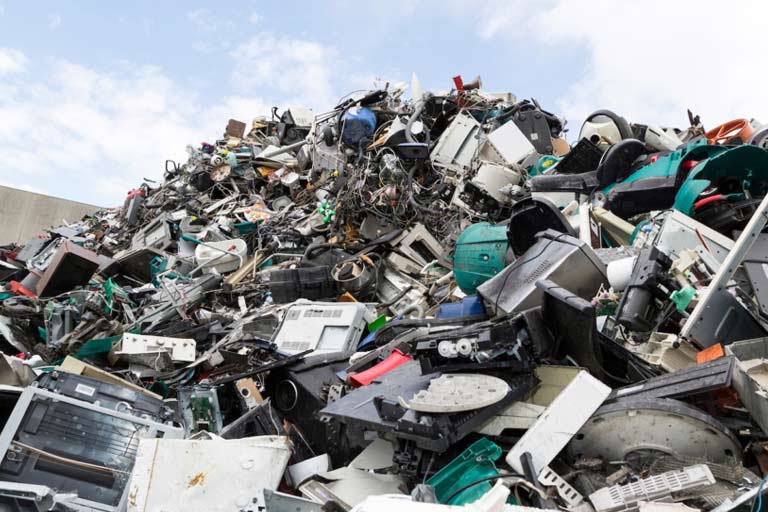Electronic Waste (E-Waste)
Industrial
Electronic Waste (E-Waste)
Electronic waste, commonly referred to as e-waste, encompasses all discarded electrical or electronic devices. This includes a wide range of products such as computers, mobile phones, televisions, refrigerators, and other electronic appliances that have reached the end of their useful life.
Contact UsIntroduction
Electronic waste, commonly referred to as e-waste, encompasses all discarded electrical or electronic devices. This includes a wide range of products such as computers, mobile phones, televisions, refrigerators, and other electronic appliances that have reached the end of their useful life. E-waste contains both valuable materials like copper and gold, as well as hazardous substances like lead, mercury, and cadmium, making its proper disposal and recycling crucial.
Environmental Benefits of E-Waste Recycling:
Before implementing a recycling program, a waste audit is often conducted to assess the types and volumes of waste generated by the commercial entity. This audit helps identify opportunities for waste reduction, recycling, and diversion from landfills.
1. Reduction of Toxic Waste: E-waste often contains hazardous materials that can leach into the soil and water, causing environmental contamination and health risks. By recycling e-waste, these harmful substances are safely managed and disposed of, preventing pollution and protecting ecosystems.
2. Conservation of Natural Resources: E-waste recycling allows for the recovery of valuable materials such as gold, silver, copper, and rare earth elements. Extracting and refining these materials from natural resources is energy-intensive and environmentally damaging. Recycling helps conserve these resources and reduces the need for mining, which in turn lowers environmental degradation and preserves biodiversity.
3. Energy Savings: Manufacturing new products from raw materials requires significantly more energy compared to recycling existing materials. By recycling e-waste, we reduce the energy consumption associated with the production of new electronic devices, thereby decreasing greenhouse gas emissions and contributing to the fight against climate change.
4. Reduction of Landfill Space: E-waste takes up a considerable amount of space in landfills and contributes to the growing waste management problem. Recycling e-waste reduces the volume of waste sent to landfills, alleviating the pressure on waste management systems and helping to maintain cleaner and healthier urban environments.
5. Promotion of Sustainable Practices: By recycling e-waste, organizations demonstrate a commitment to sustainable practices and environmental stewardship. This not only helps to create a culture of sustainability but also encourages individuals and businesses to adopt responsible waste management practices.
Our Commitment:
Our organization is dedicated to collecting e-waste and ensuring it is properly recycled by MPCB (Maharashtra Pollution Control Board) registered recyclers. Through this initiative, we actively contribute to reducing the negative impact of e-waste on the environment, promoting a sustainable future for all.
Legacy Waste:
Legacy Waste refers to waste materials that have been accumulated over a long period, often in landfills, dump sites, or other storage areas, without adequate environmental protection measures. This type of waste typically includes a mix of municipal solid waste, industrial waste, and sometimes hazardous materials, all of which have been disposed of in an unmanaged or poorly managed manner. Legacy waste is often a significant environmental concern due to its potential to cause soil and groundwater contamination, air pollution, and other ecological impacts.
Why Choose Waste Managment

Recycling is a process that converts the waste material into new refines.

Are you Look for authorised recycler of your electronic items waste here!

We dispose most industrial item's waste appropriately and neatly.

We dispose of your waste in the most eco-friendly ways for the earth.







